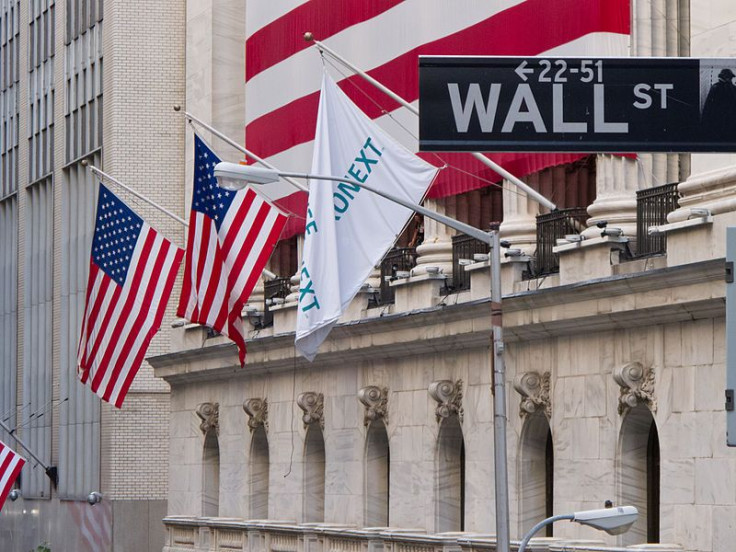Wednesday's Stock Market Open: US Equities Drifting Despite Agreement On Stimulus Bill

KEY POINTS
- $2 trillion stimulus bill is the biggest rescue package in U.S. history
- The German Ifo business climate index plunged in March
- U.S. mortgage application volume dropped 29.4% last week
Update: 12:05 p.m. EDT:
U.S. stocks were mixed at noon in volatile trading.
The Dow Jones Industrial Average gained 577.99 points to 21,282.90, while the S&P 500 gained 23.25 points to 2,470.58 and the Nasdaq Composite Index slipped 5.44 points to 7,412.41.
In Europe markets finished mixed as Britain’s FTSE-100 rose 1.94%, France’s CAC-40 gained 2.28% and Germany’s DAX fell 0.63%.
Update: 10:20 a.m. EDT:
In an erratic session U.S. stocks have turned lower in mid-morning trading.
The Dow Jones Industrial Average fell 35.75 points to 20,669.16, while the S&P 500 dropped 26.73 points to 2,420.60 and the Nasdaq Composite Index dropped 98.52 points to 7,319.34.
Update: 9:40 a.m. EDT:
U.S. stock indexes have all turned higher after some early hesitation.
The Dow Jones Industrial Average jumped 677.92 points to 21,382.83, while the S&P 500 gained 51.33 points to 2,498.66 and the Nasdaq Composite Index rose 124.04 points to 7,541.90.
Original story:
U.S. stocks opened narrowly mixed on Wednesday although lawmakers reached an agreement on a $2 trillion stimulus package to save the economy from the damage wrought by the coronavirus.
The Dow Jones Industrial Average gained 198.86 points to 20,903.77, while the S&P 500 slipped 2.14 points to 2,445.19 and the Nasdaq Composite Index fell 18.94 points to 7,398.92.
The White House and Senate leaders reached agreement early Wednesday morning on a huge $2 trillion coronavirus stimulus bill. It was said to be the biggest rescue package in U.S. history.
“At last we have a deal,” Republican Senate Majority Leader Mitch McConnell said. “In effect, this is a war-time level of investment into our nation.”
McConnell said the bill will provide financial assistance to Americans through direct checks to households, increased unemployment insurance, and hundreds of billions of dollars in loans to small businesses, among other things.
Democratic Senate Minority Leader Chuck Schumer said: “This is not a moment of celebration but one of necessity.”
While U.S. stock smarkets enjoyed a massive rally on Tuesday, some were skeptical about it.
“This was a one-day bull market,” CNBC’s Jim Cramer said. “You had stocks that moved so much they basically moved as if the second half of the year is going to be good. I struggle to find out why the second half of the year should be good ...I hate this kind of rally. This was a machine-driven rally, just like the sell-offs … I want to wait to see.”
“We still need to see a slowing of the virus cases and a peaking in the U.S.,” said Carol Pepper, chief executive officer at Pepper International. “Because until then we’ll have these huge relief-rally days -- then we’ll get a scary day and the market will plunge down again.”
Johns Hopkins University reported more than 400,000 coronavirus cases worldwide, including more than 50,000 in the U.S.
The German Ifo business climate index dropped to 86.1 in March from 96.0 in February.
“The German economy is in shock,” the Ifo institute said on Twitter.
“It should not come as a surprise to anyone but economic data for March and beyond will be horrible and probably even beyond the traditional meaning of horrible,” Carsten Brzeski, chief economist at ING Germany said.
“All Western economies are facing an unprecedented crisis. Recession is not even the right word for an almost complete standstill of entire economies, almost overnight. Germany is no exception,” he added.
Claus Vistesen, chief euro zone economist at Pantheon Macroeconomics, said the German economy is “sliding into the abyss.”
In the U.S., total mortgage application volume plunged 29.4% last week, according to the Mortgage Bankers Association.
Orders for durable goods unexpectedly rose by 1.2% in February.
Overnight in Asia, markets rose. China’s Shanghai Composite gained 2.17%, while Hong Kong’s Hang Seng jumped 3.81%, and Japan’s Nikkei-225 surged 8.04%.
In Europe markets traded higher as Britain’s FTSE-100 rose 1.08%, France’s CAC-40 gained 0.82% and Germany’s DAX fell 0.91%.
Crude oil futures dropped 2.37% at $23.44 per barrel, Brent crude fell 2.59% at $28.97. Gold futures dropped 1.01%.
The euro rose 0.29% at $1.0818 while the pound sterling gained 0.4% at $1.1804.
© Copyright IBTimes 2024. All rights reserved.




















